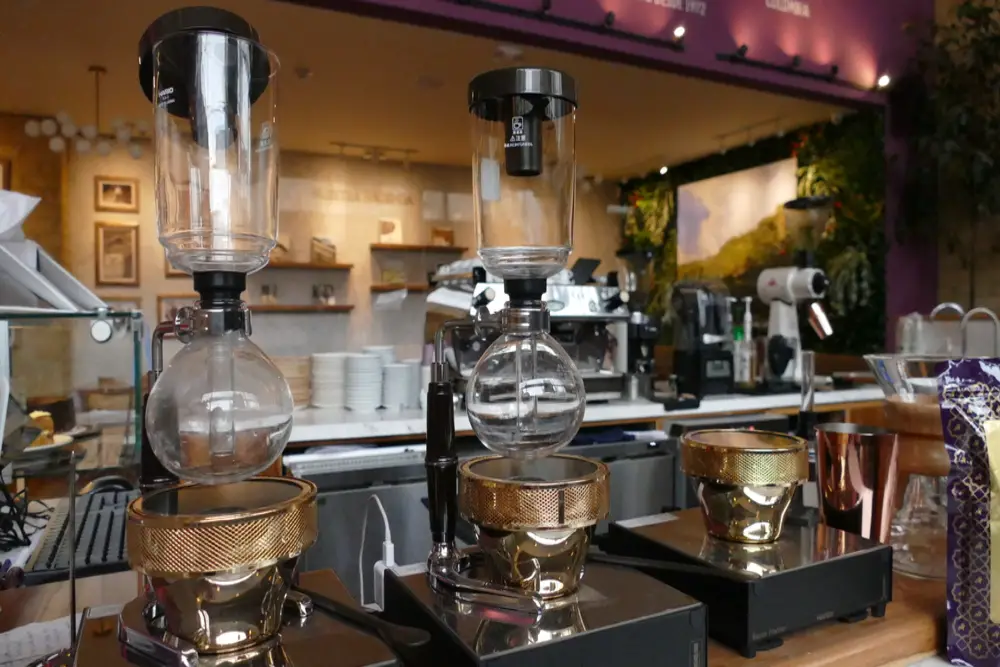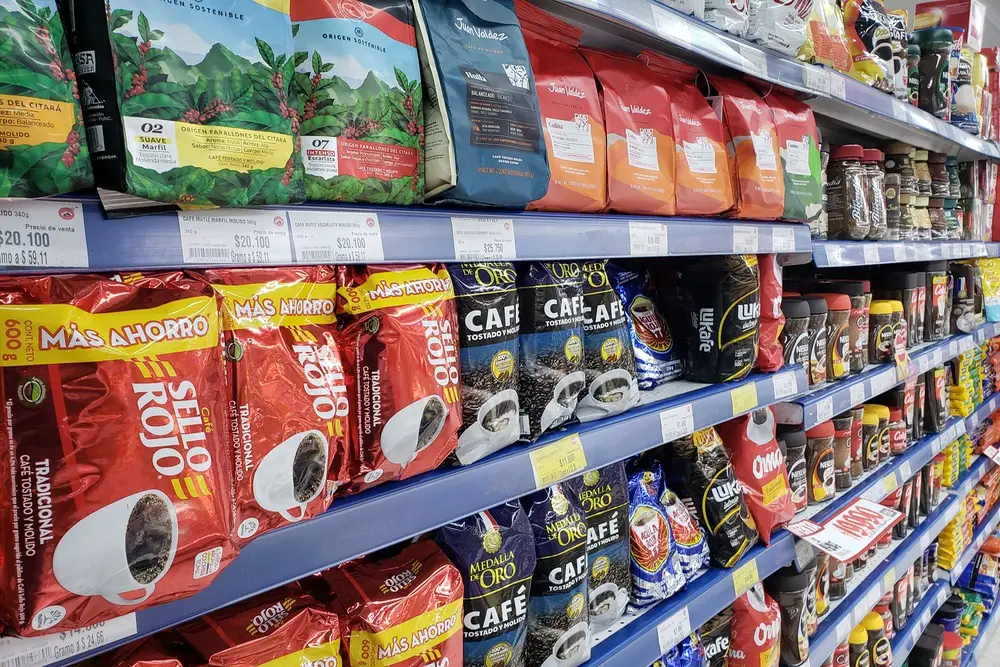Water is one of the most important factors in coffee preparation. Remember that a cup of coffee is 98% water. So, the water you use is a huge part of the overall taste and texture.
Table of Contents
Tap water and coffee
For most consumers, using tap water to prepare coffee is a matter of course. It’s easy and always available. However, this can also have a negative impact on the quality of your coffee.
Tap water can come from a lake, a river, or even from nearby groundwater. These different water sources mean that the quality and taste of tap water varies from region to region.
Even though tap water is classified as 100% potable, its taste can negatively affect the taste of coffee. Tap water can also contain levels of aluminium, copper and manganese, among many other substances, which can impart a slightly acidic or metallic taste to the water, even when using the finest coffee beans and a tried and true brewing method.
If your tap water is high in minerals like calcium and magnesium, they will build up. A white or gray deposit may form in the machine. You can remove the deposits by descaling your coffee maker.
What is distilled water?
Almost all water contains impurities, including minerals, nutrients and pollutants. Distillation removes these impurities by boiling and evaporating.
Water is considered distilled when it has been turned into steam. The vapor is then condensed again in a separate vessel. During distillation, minerals, impurities, and other compounds in the water do not boil off, but remain at the bottom of the first vessel. The water in the second tank is now completely free of these substances, so it is purified water.
Some people even go so far as to say that drinking distilled water is unhealthy. This is because it does not replenish the minerals in the body lost through sweat and urine since distilled water does not contain sodium and other minerals. Also, due to the lack of fluoride, it can lead to an imbalance in electrolytes and even tooth decay.
Distilled water is free from the following ingredients:
Microorganisms
Distillation is the only purification process that completely eliminates all microorganisms. This is a great benefit for anyone with a compromised immune system, as certain parasites, such as B. Cryptosporidium, can cause disease even in healthy people. Cryptosporidium is resistant to chlorine and can even cause death in people with weakened immune systems.
Impurities
The distillation removes healthy minerals, but above all heavy metals such as lead, mercury and arsenic.
Chlorine
Chlorine, which can affect the taste of the water, is often present in water due to municipal water treatment. In small amounts, it usually does not cause any health problems, but people who are sensitive to its smell and taste should use distilled water.
Distilled water and coffee
In order to improve the taste and texture of your coffee, the water used to make coffee should have a certain mineral content. When water is distilled, it also loses important flavor carriers by removing the minerals and compounds.
If you use distilled water in your coffee, you can expect it to have less flavor and less body.
This is especially true of black americano. If you add milk or sugar, the water used is less important. Another exception is espresso, where the coffee content is so concentrated that it works well regardless of the water used.
What is filtered water?
There are different methods for water filtration. Microfiltration is one of the most effective methods of water treatment.
It uses a filter medium with microscopic holes that traps anything larger than those holes, including toxins and other harmful substances.
Filtered water can be purchased or made at home using a filter. Simply fill the jug with tap water and let the filter complete the process. One of the most important aspects of water filtration is the removal of chlorine. However, the water retains healthy levels of beneficial minerals.
Filtered water contains all of the minerals, making it ideal for daily use and maintaining a healthy electrolyte balance.
Filtered water and coffee
Filtered water is much easier and more convenient to use for coffee. The best part is that filtered water contains all the minerals and compounds that are good for your body and enhance the coffee’s flavor.
Filtered water is the ideal choice for your coffee because it contains all the minerals that make the coffee tastier and none of the substances that can spoil the taste. A purer coffee will result.
The difference between distilled and filtered water
Both distilled and filtered water can achieve a comparable degree of purity. However, distillation also removes all additives and other vital minerals from the water. However, our body is not used to drinking completely pure water. Such water will therefore taste bland.
On the other hand, the distillation of water can pollute the environment. Distillation can leave excessively saline water, which can be disruptive to the local ecosystem. In addition, this process is very energy-intensive. A home water filtration system is a more efficient and optimal alternative.
Conclusion
Many Deep-L lovers say they prefer filtered tap water. Ultimately, however, it depends on individual preferences and what is on offer in the region. When tap water doesn’t taste good, filtered water is your best bet.
We know that coffee is mostly water, and the distillation removes all of the minerals that give the water its flavor. If the water doesn’t taste good, the coffee won’t taste good either.



